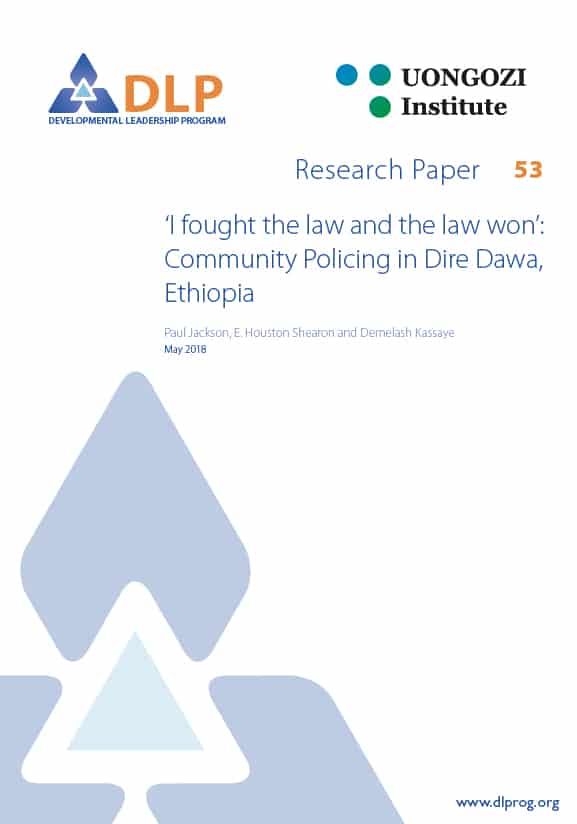This paper examines the introduction of community policing in Dire Dawa, Ethiopia, and the relationships in this district between formal policing structures and non-state security actors. It shows that these relationships are complex – there is neither a simple dichotomy between state and non-state nor a clear hybrid system. Rather, the institutional multiplicity available gives a series of choices to those seeking justice and to those providing it.
The community police initiative offers a positive way of reducing friction between the different policing providers – by acting as an interlocutor, but also by recognising the legitimacy of local actors in some instances and enforcing the state’s legitimacy in others. In this way, local providers can use local actors to enhance their reach and effectiveness but also to extend the reach of the state and the legitimacy of the law at the local level.
This case study is funded by and published in collaboration with the Institute of African Leadership for Sustainable Development (UONGOZI Institute). It is part of a series of studies exploring transformational leadership in Africa.
See the project’s synthesis paper: Perera, S., Shearon, E. H., Jackson P. & Lyne de Ver, H. (2018) What Enables or Disables Leadership for Transformational Change in Africa? DLP Research Paper 55, Birmingham: Developmental Leadership Program / Dar es Salaam: UONGOZI Institute.









